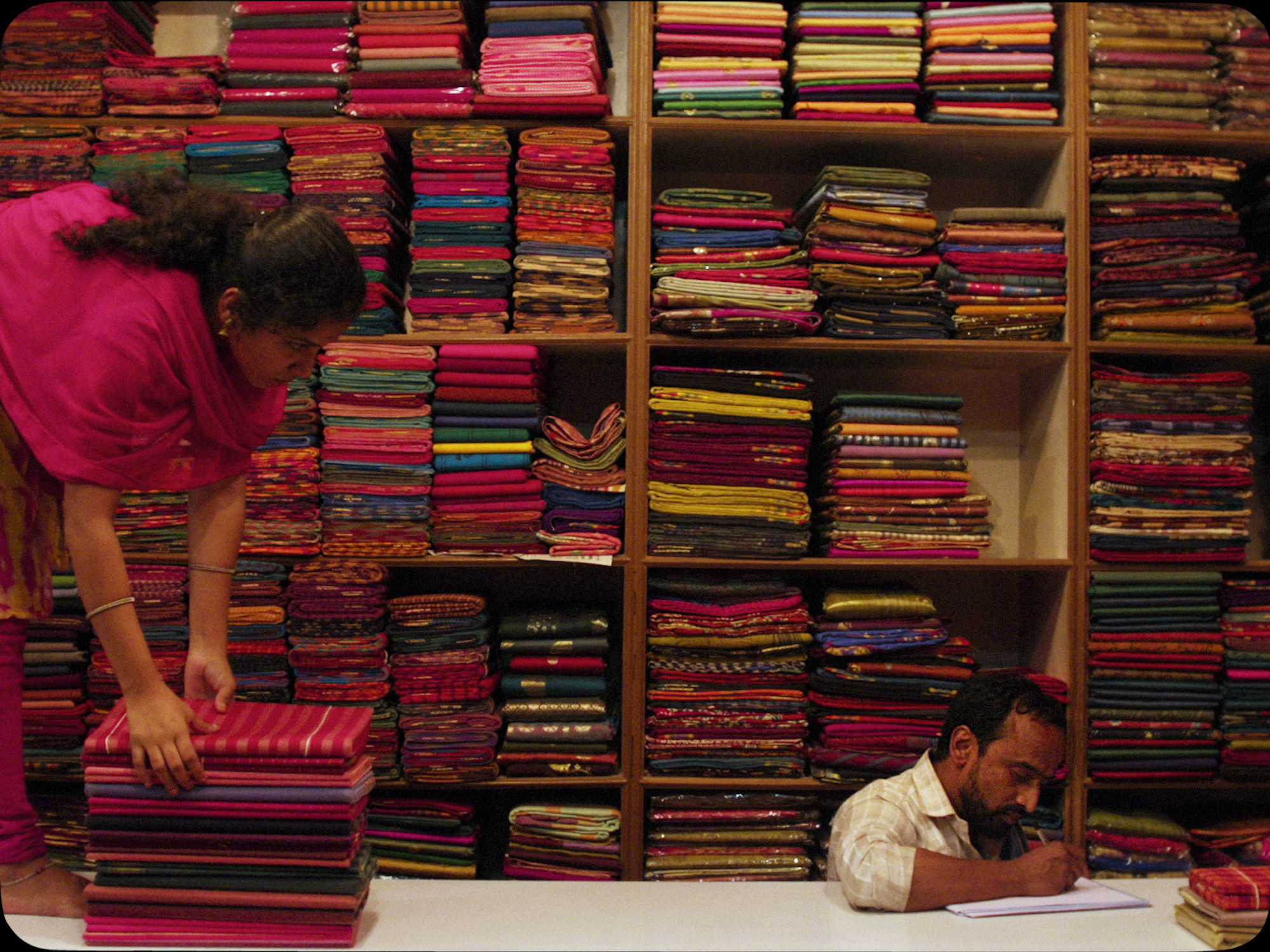The remarkably patient and specific Indian indie Nasir is one of those films that starts and ends in very different places. Adapting the Tamil writer Dilip Kumar's short fiction A Clerk's Story, writer-director Arun Karthick initially appears keen to describe what appears a typical day in the life of Muslim husband and father Nasir (Koumarane Valavane), from the point at which he wakes at 6 a.m. Like many an early riser, it takes some while to get up to speed, Karthick instead pottering around Nasir's household, alighting on striking domestic details: the radio cassette player he reaches for to soundtrack breakfast, the wads of banknotes he's secreted around the house, a pot plant growing overlooked in the corner of one slightly cramped room. Local viewers may or may not recall spending time in homes such as this; but both they and non-Indian viewers will quickly spot how exceptionally judicious Karthick is in his camera placement and sound mixing. Even when what's front and centre is no more than quotidian, this filmmaker has an uncommon knack for opening up the back and sides of his rounded Academy frame, the better to give a sense of the bustling, varyingly predictable world beyond. Heading into the city to complete some pre-work chores and see his wife off on her travels from the bus station, Nasir passes a fellow shopkeeper reading a newspaper, some washing on a line, and we know immediately that this is exactly what would occupy that spot at that time if we were passing through on any other day. This day, however, comes to seem different in some subtly perturbing way. The protagonist's journey into town is accompanied by the sounds of a nationalist rally, and once ensconced behind the counter of his well-stocked garment shop, we hear talk of a parade scheduled to pass through the area later in the afternoon. All the earlier pottering, it transpires, is merely how days like these begin.
As you may have already intuited, what we're witnessing - and witnessing is exactly what we're doing here - will turn out to be no ordinary day at all; that Nasir is as the schoolkids meandering through the corridors of Gus van Sant's Elephant or the housewife in Chantal Akerman's Jeanne Dielman..., i.e. about to find themselves at the epicentre of fateful, life-changing events. (You couldn't make a feature film where this little happens for so long, because you'd be entering the realms of observational documentary, and even then you feel one or more of the producers would intervene and insist on having a bit more action upfront.) Yet the precision with which Karthick frames that ominous nothing - Nasir readjusting the mannequins in the store's backroom, standard-issue shoptalk about where to go for lunch, an aged neighbour pestering the protagonist to pick up a copy of Playboy for him - transforms these commonplaces into involving, funny, foreboding cinema; seemingly idle chat-chat serves either as a pointer of where we're headed, or assumes the gravity of potential last words. The quiet around Nasir, you realise, is the same quiet neighbours speak of on news reports when they declare "he was a quiet man" - and yet Karthick's forever poised and balanced frames betray no immediate way of knowing whether this man is doomed to be reported on as an aggressor or victim. Only deep into the second half does this largely taciturn, inscrutable fellow begin to reveal himself, and we realise what a precise job Valavane, too, is doing, remaining truthful to the second or scene he finds himself in, while never letting slip what's coming up around the corner. In the meantime, we can but watch and wait, or sit and squirm - and when Nasir does finally turn that corner, Karthick unseating the camera from his tripod to alight upon one of 21st century India's harsher realities, the effect is powerful beyond words. From the lowliest clerk to the mouthiest ruler, history has a way of creeping up on us all.

No comments:
Post a Comment